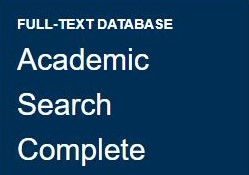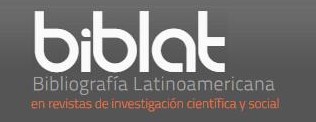Análisis de la producción científica sobre la inteligencia artificial en el sector turístico
Palabras clave:
bibliometría, inteligencia artificial, turismoResumen
La Inteligencia Artificial (IA) surgió como un concepto ambiguo de las informáticas y ahora se utiliza en muchos ámbitos de la vida. Ha despertado el interés del mundo académico por sus perspectivas y alternativas a problemas complejos. El objetivo de la presente investigación es evaluar el progreso sobre los temas de investigación de la IA en el ámbito del turismo recogidos en la base de datos de Scopus. Se llevó a cabo una investigación cuantitativa, con un enfoque retrospectivo y descriptivo, a partir de un estudio bibliométrico en el período 2021-2024. El pico de investigaciones fue 354. El país más productor fue China. Se identificaron cuatro líneas de investigación. El exhaustivo marco de conocimientos y las futuras líneas de investigación facilitan al lector una rápida comprensión de la evolución general y le inspiran para buscar temas específicos de forma eficiente y eficaz.
Citas
Al sari, B., Alkhaldi, R., Alsaffar, D., Alkhaldi, T., Almaymuni, H., Alnaim, N., Alghamdi, N., & Olatunji, S. O. (2022). Sentiment analysis for cruises in Saudi Arabia on social media platforms using machine learning algorithms [Article]. Journal of Big Data, 9(1), Article 21. https://doi.org/10.1186/s40537-022-00568-5
Benaddi, L., Ouaddi, C., Jakimi, A., & Ouchao, B. (2024). Towards A Software Factory for Developing the Chatbots in Smart Tourism Mobile Applications. Procedia Computer Science,
Bowen, J., & Whalen, E. (2017). Trends that are changing travel and tourism. Worldwide Hospitality and Tourism Themes, 9(6), 592-602. https://doi.org/https://doi.org/10.1108/WHATT-09-2017-0045
Buhalis, D. (2003). eTourism: Information technology for strategic tourism management. Pearson education.
Casteleiro-Roca, J.-L., Gómez-González, J. F., Calvo-Rolle, J. L., Jove, E., Quintián, H., Martín, J. F. A., Perez, S. G., Diaz, B. G., Calero-Garcia, F., & Méndez-Perez, J. A. (2018). Prediction of the energy demand of a hotel using an artificial intelligence-based model. Hybrid Artificial Intelligent Systems: 13th International Conference, HAIS 2018, Oviedo, Spain, June 20-22, 2018, Proceedings 13,
Fararni, K. A., Nafis, F., Aghoutane, B., Yahyaouy, A., Riffi, J., & Sabri, A. (2021). Hybrid recommender system for tourism based on big data and AI: A conceptual framework [Article]. Big Data Mining and Analytics, 4(1), 47-55, Article 9321202. https://doi.org/10.26599/BDMA.2020.9020015
Ferràs, X., Hitchen, E. L., Tarrats-Pons, E., & Arimany-Serrat, N. (2020). Smart tourism empowered by artificial intelligence: The case of Lanzarote. Journal of Cases on information Technology (JCIT), 22(1), 1-13. https://doi.org/DOI: 10.4018/JCIT.2020010101
Gajdošík, T., & Marciš, M. (2019). Artificial intelligence tools for smart tourism development. Artificial Intelligence Methods in Intelligent Algorithms: Proceedings of 8th Computer Science On-line Conference 2019, Vol. 2 8,
González-Rodríguez, M. R., Díaz-Fernández, M. C., & Pacheco Gómez, C. (2020). Facial-expression recognition: An emergent approach to the measurement of tourist satisfaction through emotions. Telematics and Informatics, 51, 101404. https://doi.org/https://doi.org/10.1016/j.tele.2020.101404
Gretzel, U. (2011). Intelligent systems in tourism: A Social Science Perspective. Annals of Tourism Research, 38(3), 757-779. https://doi.org/https://doi.org/10.1016/j.annals.2011.04.014
Gretzel, U., Fesenmaier, D. R., & O’Leary, J. T. (2006). The transformation of consumer behaviour. In Tourism business frontiers (pp. 9-18). Routledge. https://doi.org/ttps://doi.org/10.1016/b978-0-7506-6377-9.50009-2
Hadavandi, E., Ghanbari, A., Shahanaghi, K., & Abbasian-Naghneh, S. (2011). Tourist arrival forecasting by evolutionary fuzzy systems. Tourism Management, 32(5), 1196-1203. https://doi.org/https://doi.org/10.1016/j.tourman.2010.09.015
He, W. (2024). Application of light sensor localization based on deep learning algorithm in tourist path recommendation in cultural scenic spots [Article]. Optical and Quantum Electronics, 56(2), Article 238. https://doi.org/10.1007/s11082-023-05876-5
Huang, A., De la Mora Velasco, E., Haney, A., & Alvarez, S. (2022). The Future of Destination Marketing Organizations in the Insight Era [Article]. Tourism and Hospitality, 3(3), 803-808. https://doi.org/10.3390/tourhosp3030049
Inanc–Demir, M., & Kozak, M. (2019). Big data and its supporting elements: Implications for tourism and hospitality marketing. Big data and innovation in tourism, travel, and hospitality: Managerial approaches, techniques, and applications, 213-223. https://doi.org/doi.org/10.1007/978-981-13-6339-9
Indaryanto, A., Harijadi, B. D., & Sinaga, E. (2023). The growing use and impact of artificial intelligence technologies in the tourism industry [Article]. Sustainable Engineering and Innovation, 5(2), 189-204. https://doi.org/10.37868/sei.v5i2.id238
Kazak, A., Chetyrbok, P., & Oleinikov, N. (2020). Artificial intelligence in the tourism sphere. IOP Conference Series: Earth and Environmental Science,
Kirilenko, A. P., Stepchenkova, S. O., Kim, H., & Li, X. (2017). Automated Sentiment Analysis in Tourism: Comparison of Approaches. Journal of Travel Research, 57(8), 1012-1025. https://doi.org/10.1177/0047287517729757
Law, R. (1998). Room occupancy rate forecasting: a neural network approach. International Journal of Contemporary Hospitality Management, 10(6), 234-239. https://doi.org/doi.org/10.1108/09596119810232301
Law, R. (2000). Back-propagation learning in improving the accuracy of neural network-based tourism demand forecasting. Tourism Management, 21(4), 331-340. https://doi.org/https://doi.org/10.1016/S0261-5177(99)00067-9
Law, R., Leung, R., & Buhalis, D. (2010). An analysis of academic leadership in hospitality and tourism journals. Journal of Hospitality & Tourism Research, 34(4), 455-477. https://doi.org/https://doi.org/10.1177/1096348010370866
Lukita, C., Pangilinan, G. A., Chakim, M. H. R., & Saputra, D. B. (2023). Examining the Impact of Artificial Intelligence and Internet of Things on Smart Tourism Destinations: A Comprehensive Study [Article]. APTISI Transactions on Technopreneurship, 5(2Sp), 12-22. https://doi.org/10.34306/att.v5i2sp.332
Minora, U., Iacus, S. M., e Silva, F. B., Sermi, F., & Spyratos, S. (2023). Nowcasting tourist nights spent using innovative human mobility data [Article]. PLoS ONE, 18(10 October), Article e0287063. https://doi.org/10.1371/journal.pone.0287063
Muneer, V. K., & Mohamed Basheer, K. P. (2023). A Collaborative Destination Recommender Model in Dravidian Language by Social Media Analysis. Lecture Notes in Networks and Systems,
Orden-Mejía, M., Carvache-Franco, M., Huertas, A., Carvache-Franco, O., & Carvache-Franco, W. (2023). Modeling users’ satisfaction and visit intention using AI-based chatbots [Article]. PLoS ONE, 18(9 September), Article e0286427. https://doi.org/10.1371/journal.pone.0286427
Pannu, A. (2015). Artificial intelligence and its application in different areas. Artificial Intelligence, 4(10), 79-84.
Pavaloiu, A., Köse, U., & Boz, H. (2017). How to apply artificial intelligence in social sciences. IASOS-Congress of International Applied Social Sciences,
Popesku, J. (2019). Current applications of artificial intelligence in tourism and hospitality. Sinteza 2019-International Scientific Conference on Information Technology and Data Related Research,
Puri, V., Mondal, S., Das, S., & Vrana, V. G. (2023). Blockchain Propels Tourism Industry—An Attempt to Explore Topics and Information in Smart Tourism Management through Text Mining and Machine Learning [Article]. Informatics, 10(1), Article 9. https://doi.org/10.3390/informatics10010009
Ritchie, B. W. (2004). Chaos, crises and disasters: a strategic approach to crisis management in the tourism industry. Tourism Management, 25(6), 669-683. https://doi.org/https://doi.org/10.1016/j.tourman.2003.09.004
Sánchez Suárez, Y., Pérez Castañeira, J. A., Sangroni Laguardia, N., Cruz Blanco, C., & Medina Nogueira, Y. E. (2021). Retos actuales de la logística y la cadena de suministro. Ingeniería Industrial, 42(1), 169-184. http://scielo.sld.cu/scielo.php?pid=S1815-59362021000100169&script=sci_arttext&tlng=pt
Sánchez Suárez, Y., Pérez Gamboa, A. J., Hernández Nariño, A., Díaz-Chieng, L. Y., Marqués León, M., Pancorbo Sandoval, J. A., & Rodríguez Torres, E. (2023). Cultura hospitalaria y responsabilidad social: un estudio mixto de las principales líneas para su desarrollo. Salud, Ciencia y Tecnología-Serie de Conferencias, 2, 451-451. https://doi.org/https://doi.org/10.56294/sctconf2023451
Sarmentero Bon, I., Sánchez Suárez, Y., Rodríguez Sánchez, Y., Bravo Macías, C. C., & Torrens Pérez, M. E. (2022). Bibliometría sobre la cultura organizacional en el sector de la salud, ante la COVID-19. Universidad y Sociedad, 14(S6), 427-436.
Singh, S. K., Rathore, S., & Park, J. H. (2020). BlockIoTIntelligence: A Blockchain-enabled Intelligent IoT Architecture with Artificial Intelligence. Future Generation Computer Systems, 110, 721-743. https://doi.org/https://doi.org/10.1016/j.future.2019.09.002
Tápanes Suárez, E., Bosch Nuñez, O., Sánchez Suárez, Y., Marqués León, M., & Santos Pérez, O. (2023). Sistema de indicadores para el control de la sostenibilidad de los centros históricos asociada al transporte. Región Científica, 2(1), 202352-202352. https://doi.org/https://doi.org/10.58763/rc202352
TOPAL, İ., & UÇAR, M. K. (2018). In tourism, using artificial intelligence forecasting with Tripadvisor data: Year of Turkey in China. 2018 International Conference on Artificial Intelligence and Data Processing (IDAP),
Utku, A., & Can, U. (2021). Deep Learning Based Effective Weather Prediction Model for Tunceli City. Proceedings - 6th International Conference on Computer Science and Engineering, UBMK 2021,
Wang, D. (2021). Artificial intelligence–based mountain soil erosion and the impact of climate conditions on marathon competitions [Retracted]. Arabian Journal of Geosciences, 14(11), Article 948. https://doi.org/10.1007/s12517-021-07245-6
Wang, N. (2022). Application of DASH client optimization and artificial intelligence in the management and operation of big data tourism hotels [Article]. Alexandria Engineering Journal, 61(1), 81-90. https://doi.org/10.1016/j.aej.2021.04.080
Wong, L. W., Tan, G. W. H., Ooi, K. B., & Dwivedi, Y. (2024). The role of institutional and self in the formation of trust in artificial intelligence technologies [Article]. Internet Research, 34(2), 343-370. https://doi.org/10.1108/INTR-07-2021-0446
Yu, N., & Chen, J. (2022). Design of Machine Learning Algorithm for Tourism Demand Prediction [Article]. Computational and Mathematical Methods in Medicine, 2022, Article 6352381. https://doi.org/10.1155/2022/6352381
Zhang, B., Li, N., Shi, F., & Law, R. (2020). A deep learning approach for daily tourist flow forecasting with consumer search data. Asia Pacific Journal of Tourism Research, 25(3), 323-339. https://doi.org/10.1080/10941665.2019.1709876
Zhang, H. (2021). Exploration and Analysis of Tourism Marketing Management Innovation Based on Big Data. Journal of Physics: Conference Series,
Zheng, W., Liao, Z., & Lin, Z. (2020). Navigating through the complex transport system: A heuristic approach for city tourism recommendation. Tourism Management, 81, 104162. https://doi.org/https://doi.org/10.1016/j.tourman.2020.104162
Zhu, B. (2021). Impact of Tourism Big Data on B & B Sharing Economy. Journal of Physics: Conference Series,
Descargas
Publicado
Cómo citar
Número
Sección
Licencia

Esta obra está bajo una licencia internacional Creative Commons Atribución-NoComercial-SinDerivadas 4.0.












